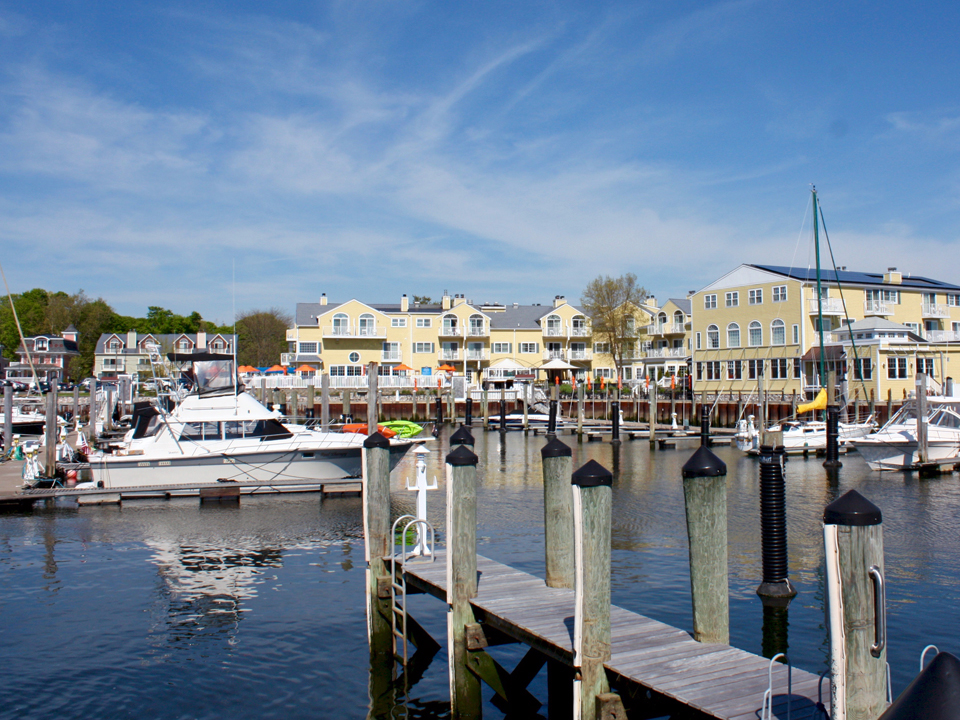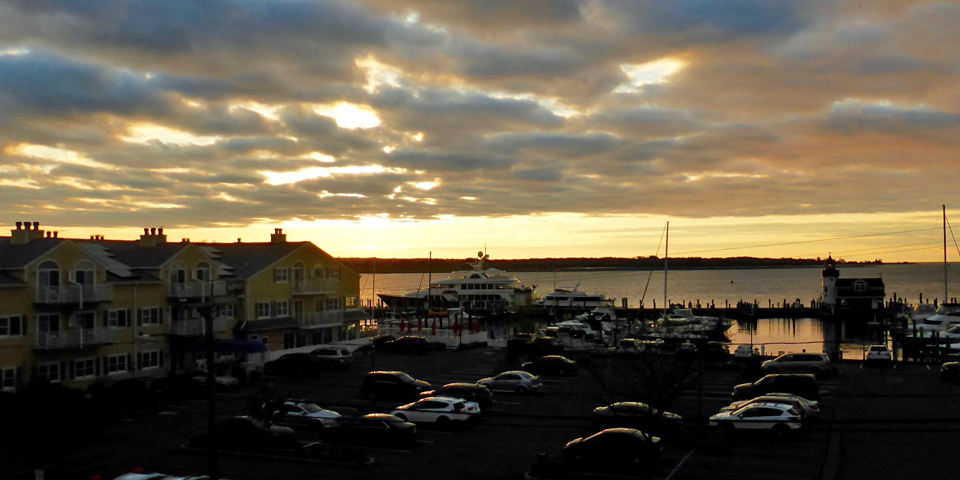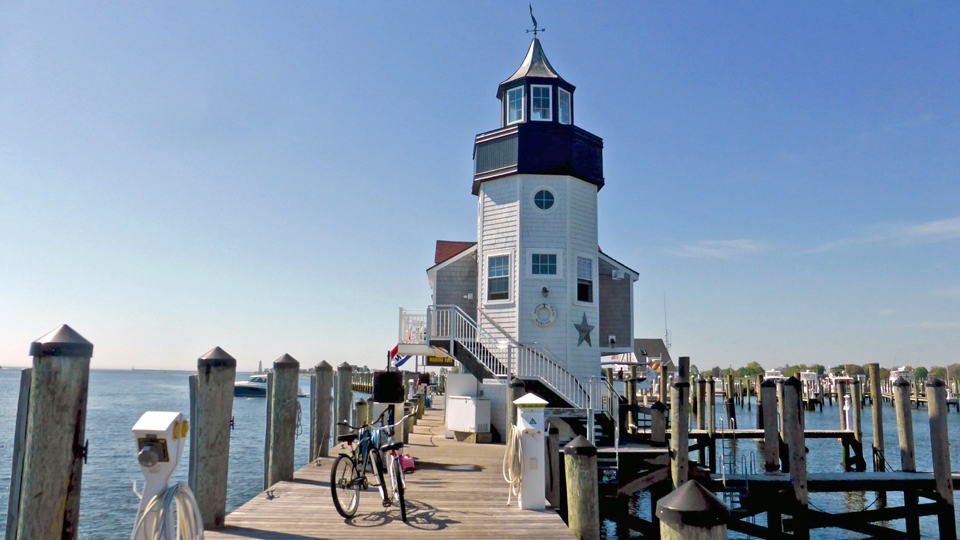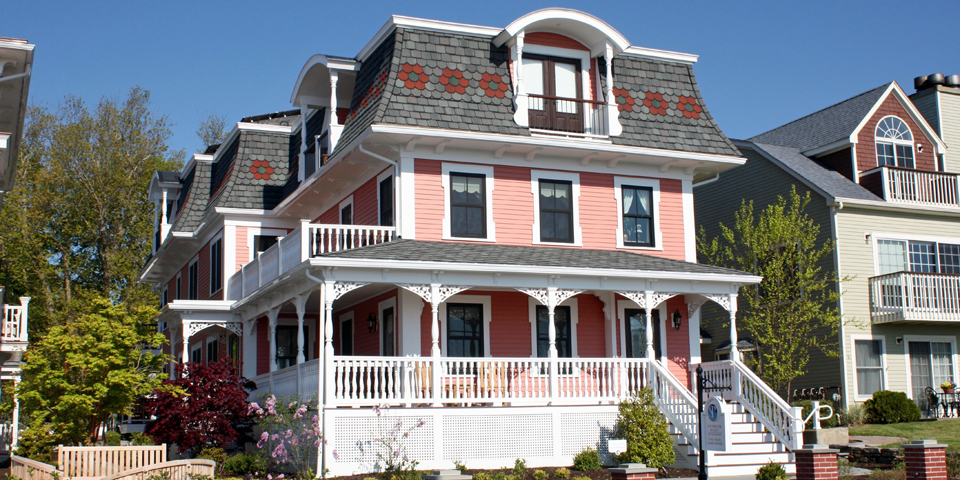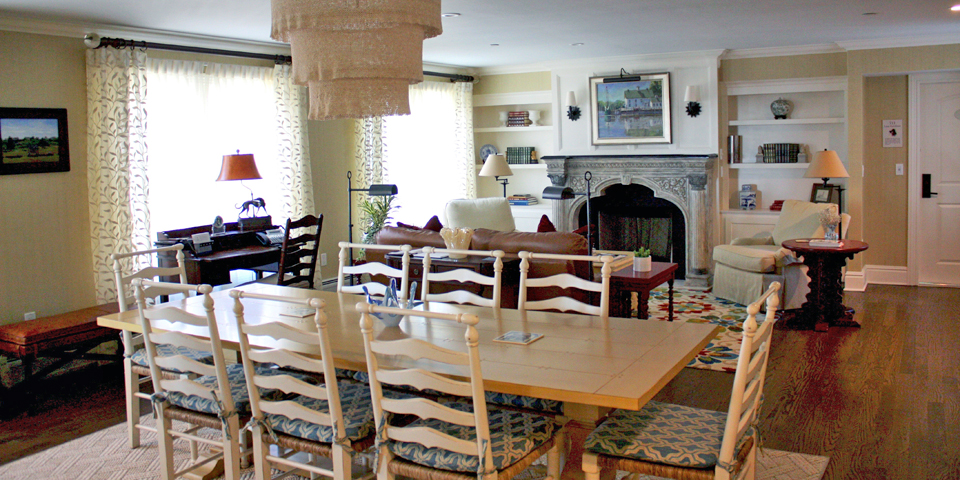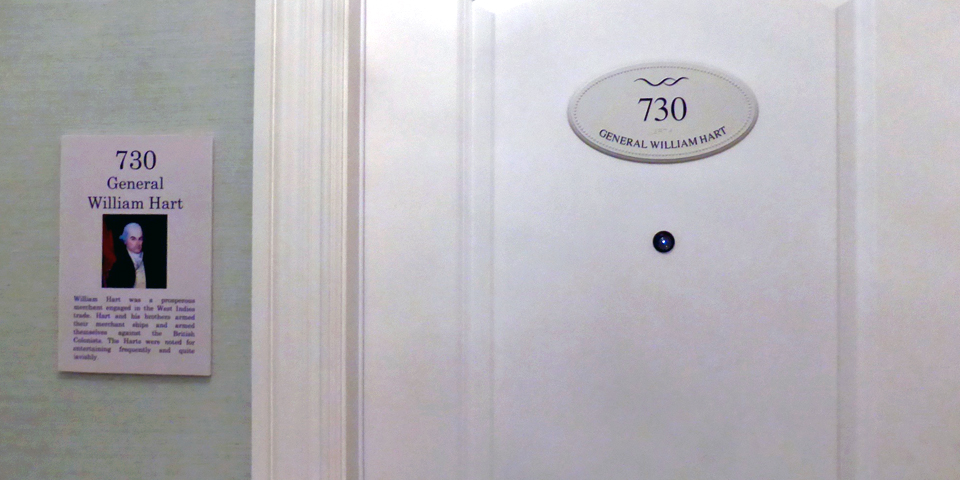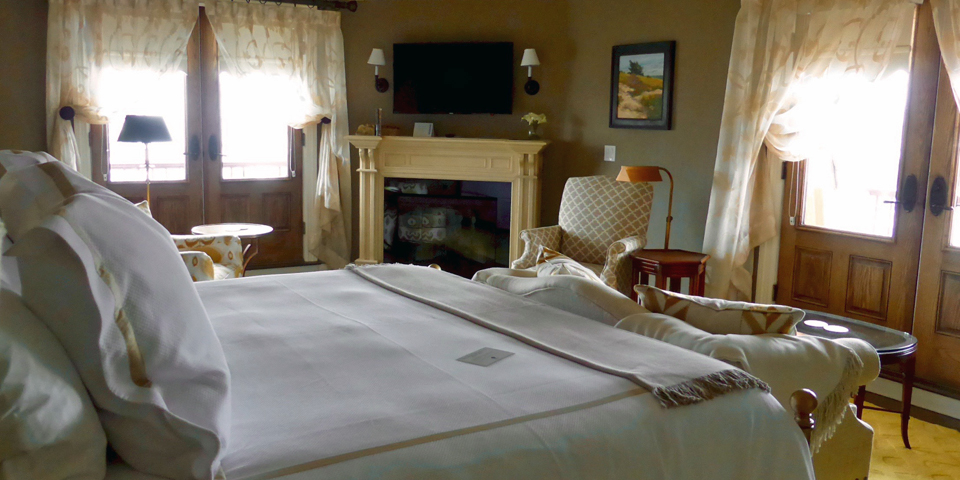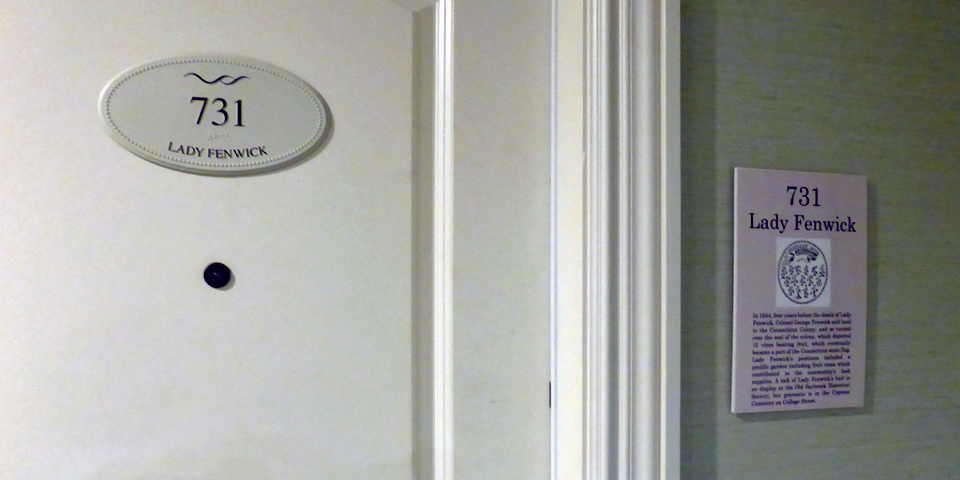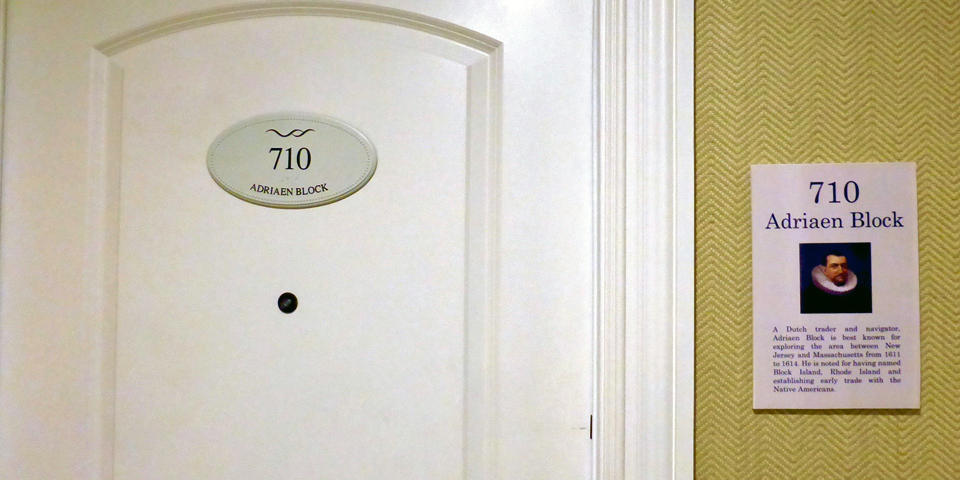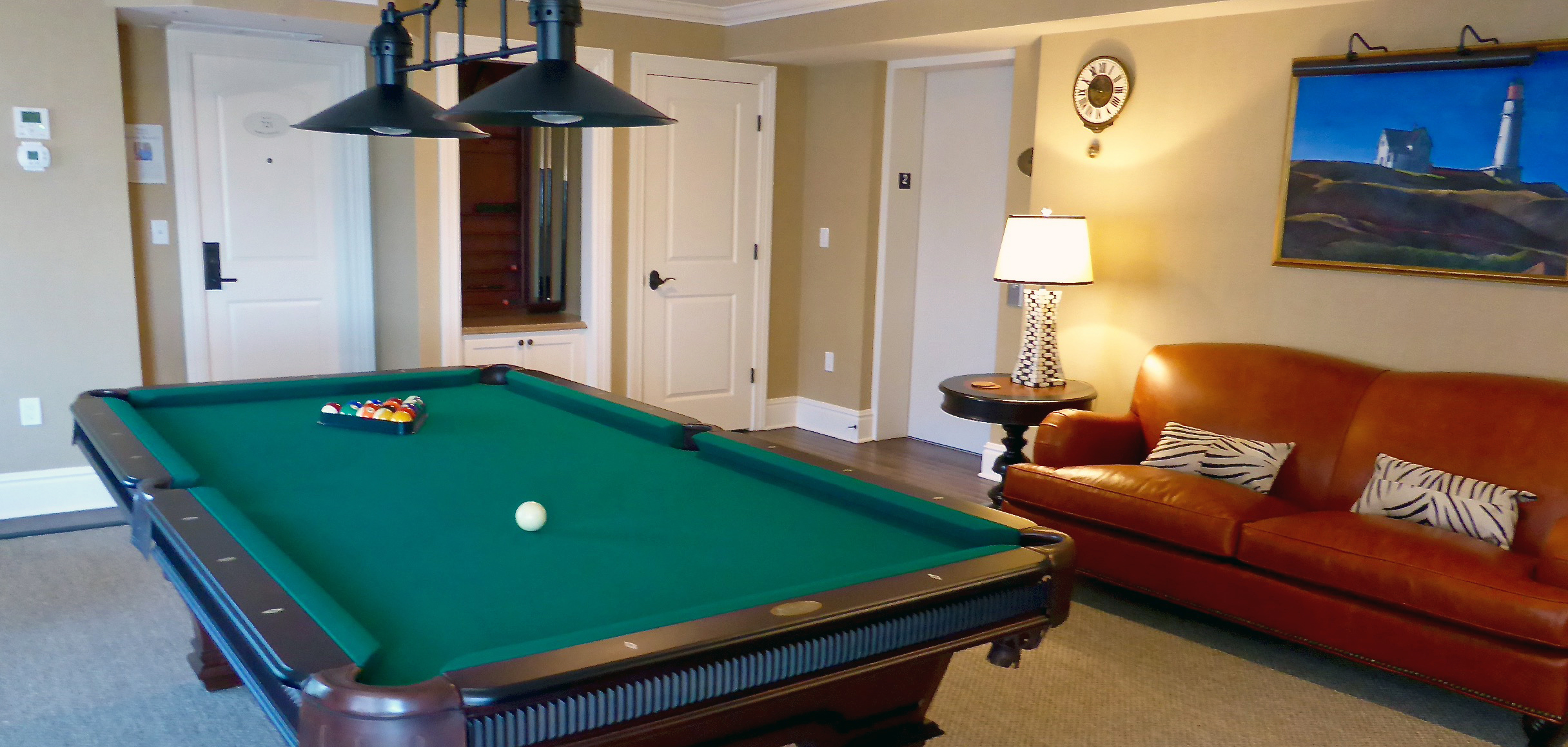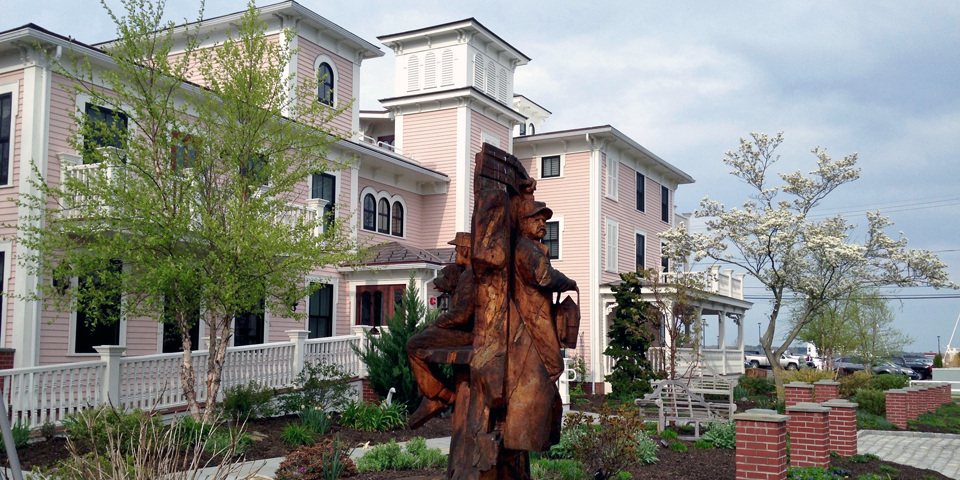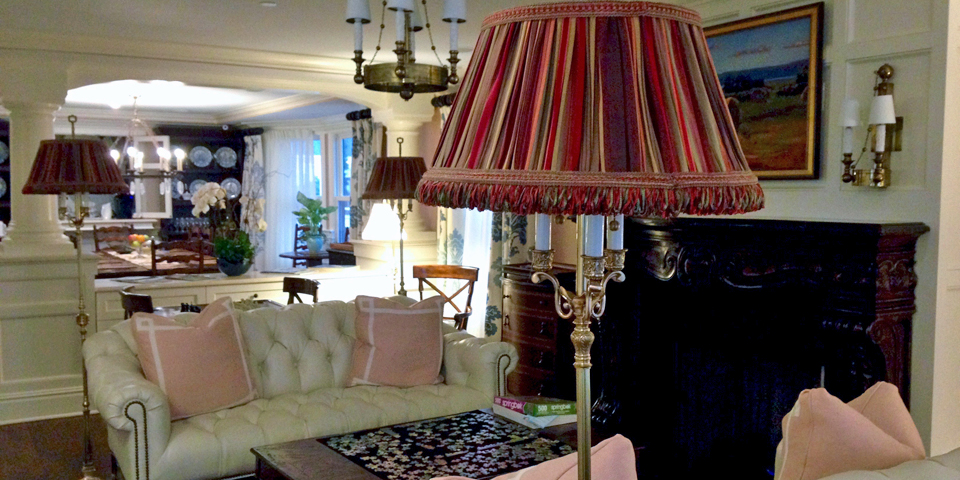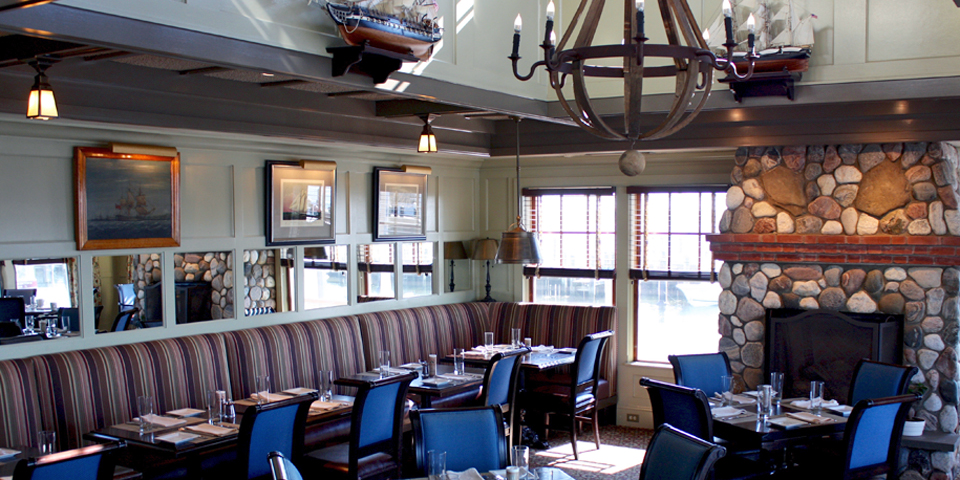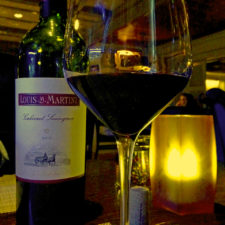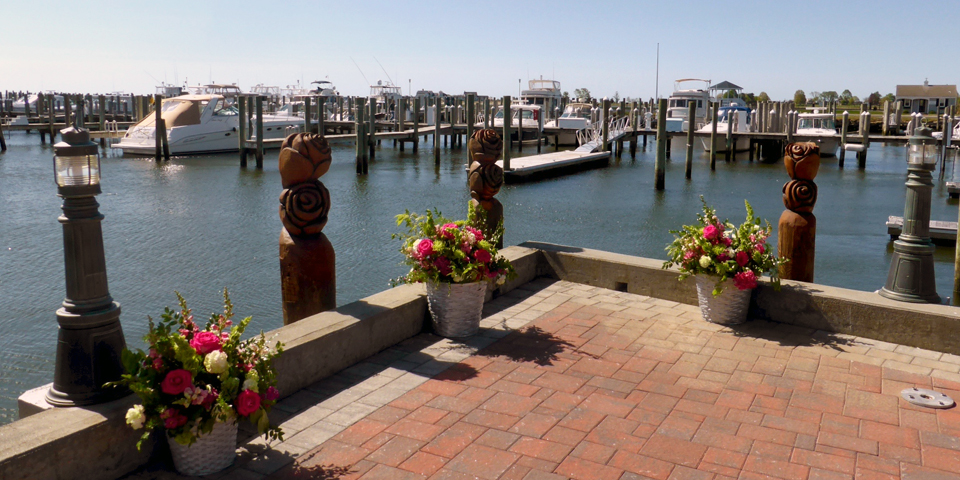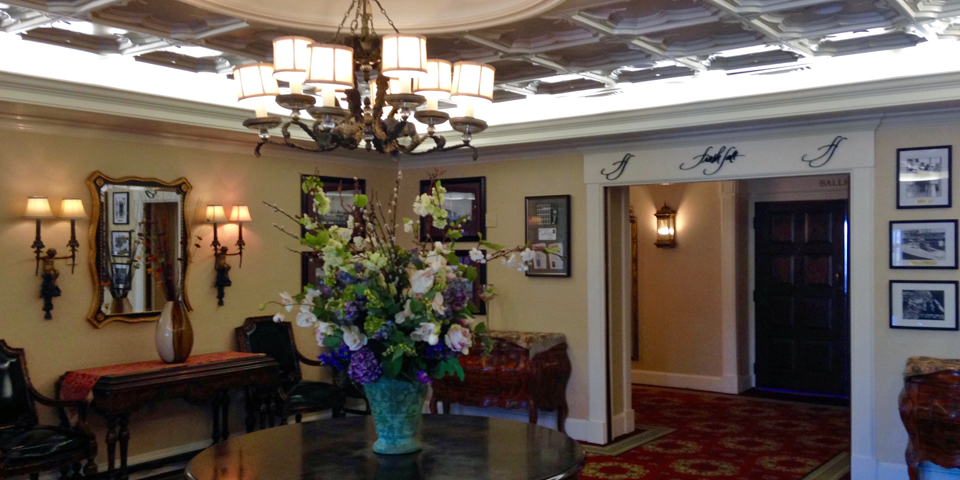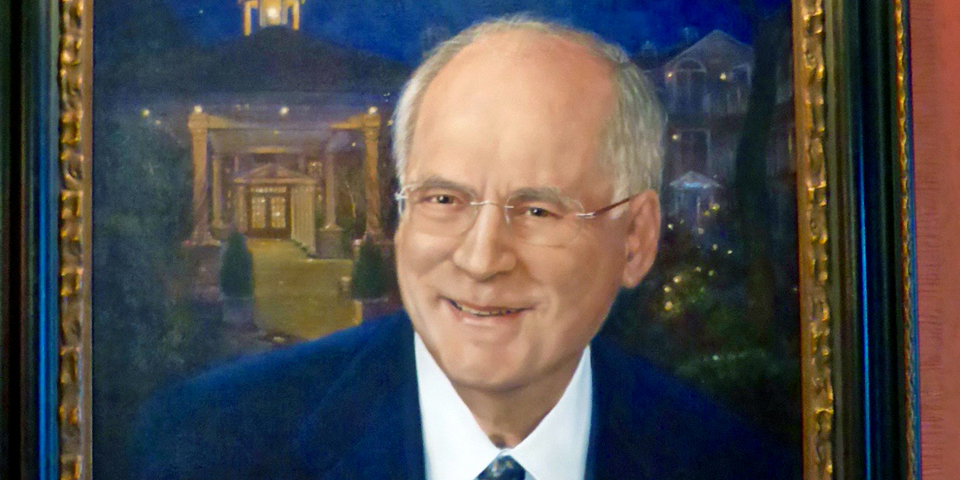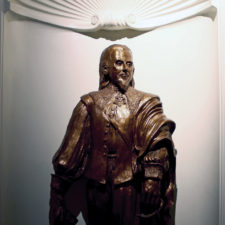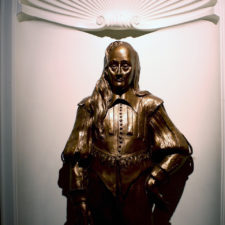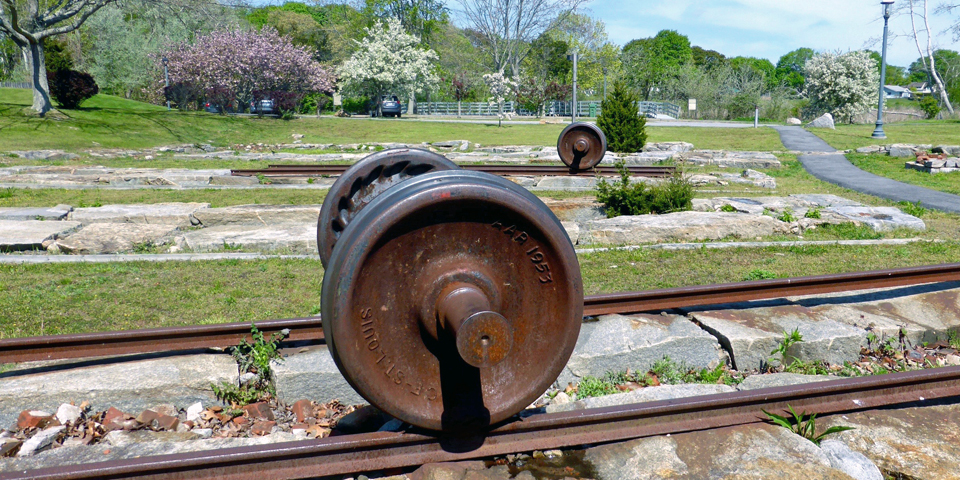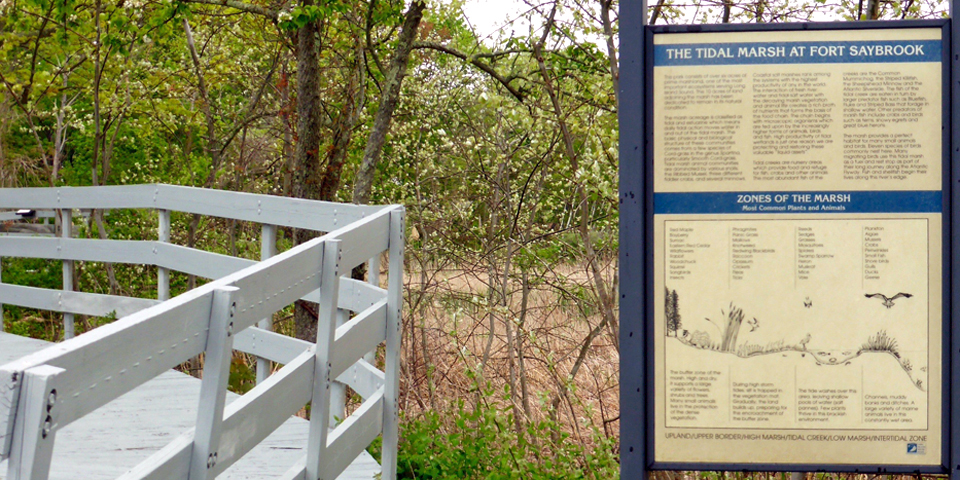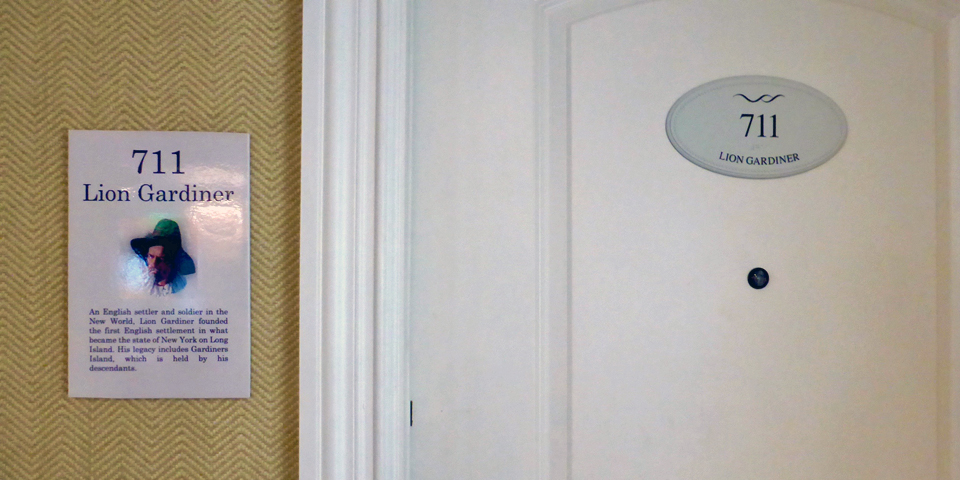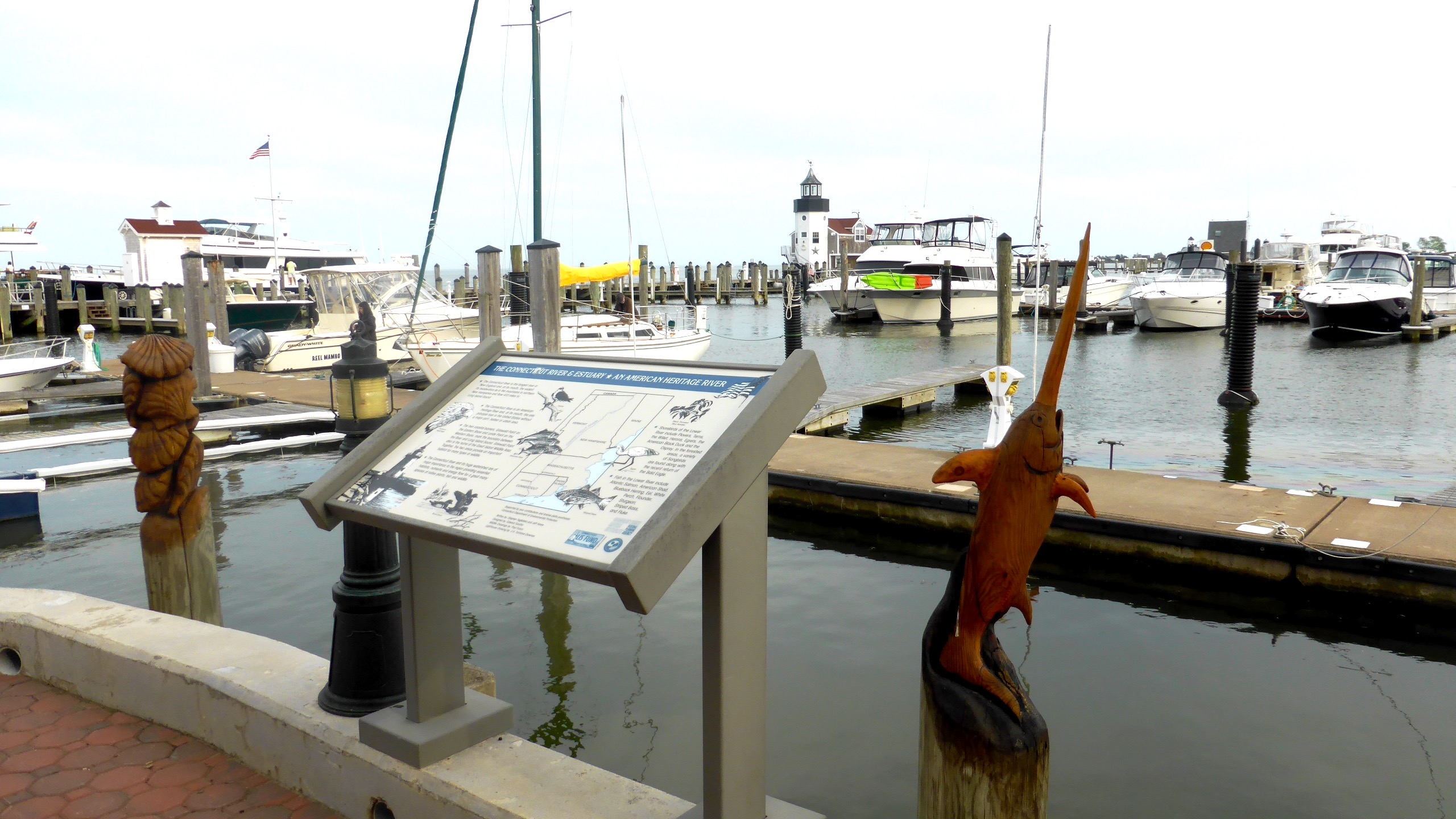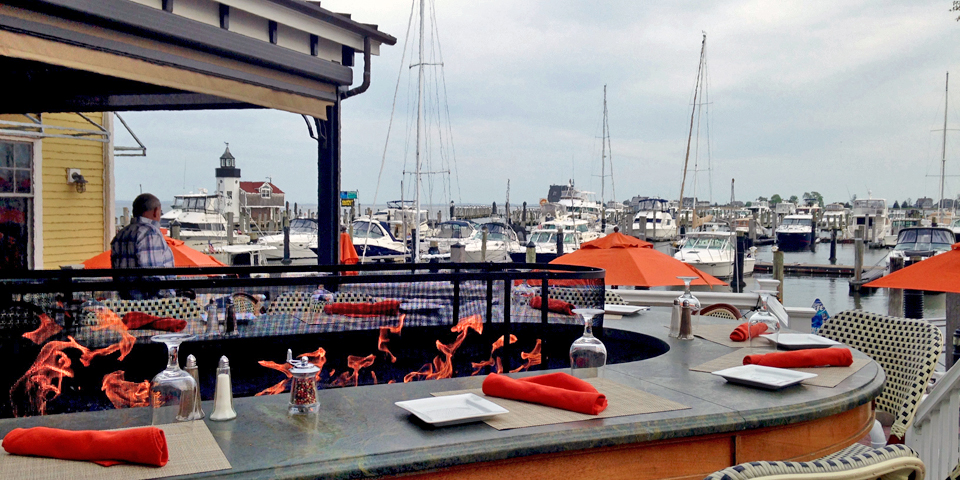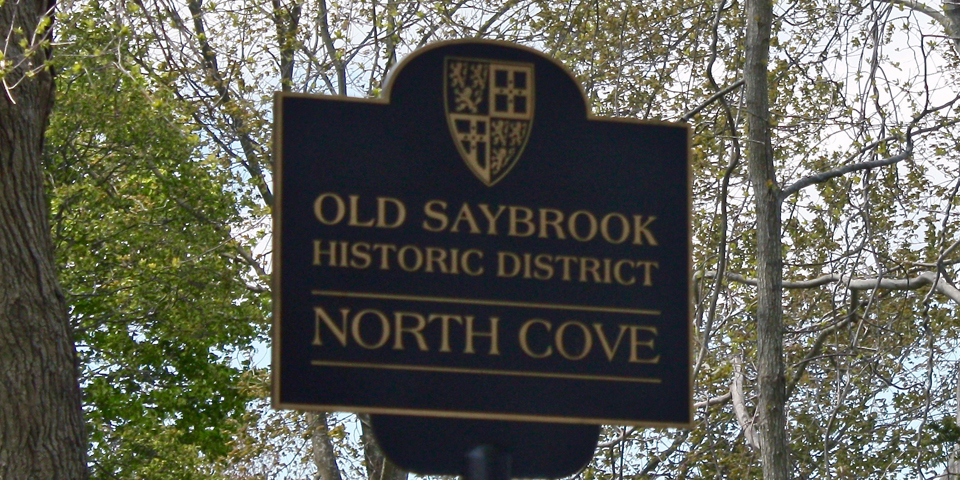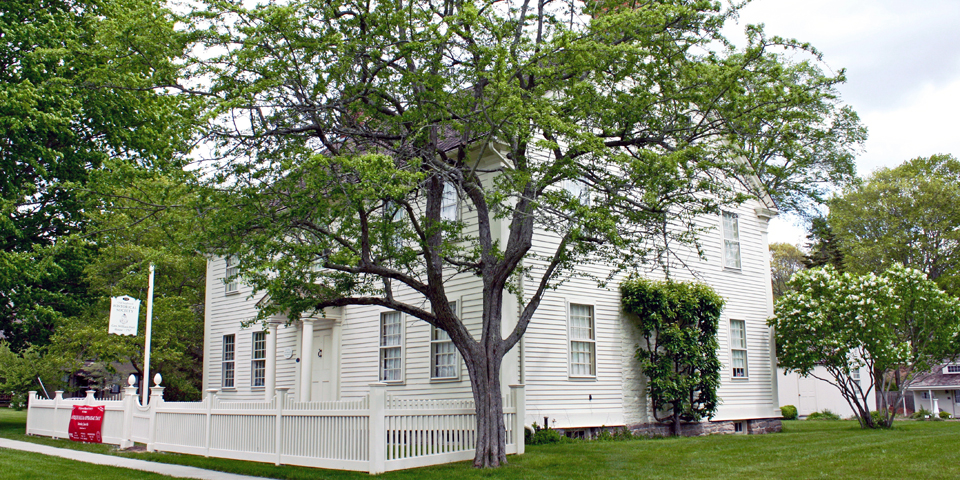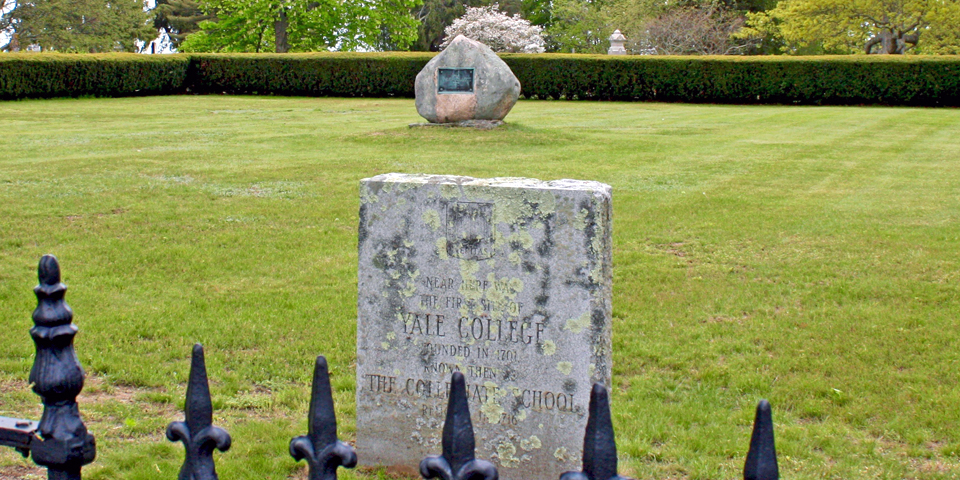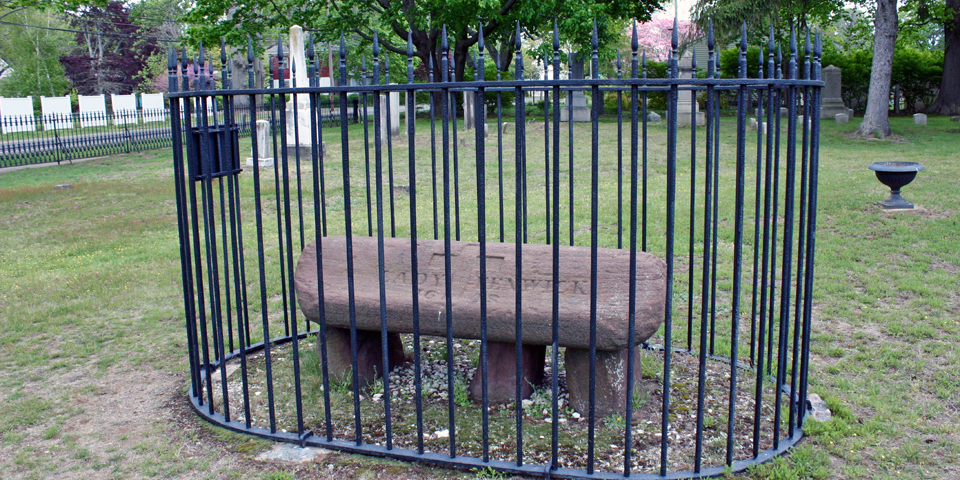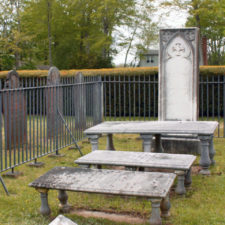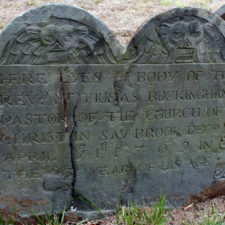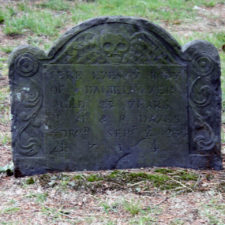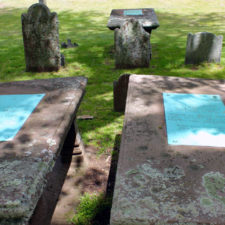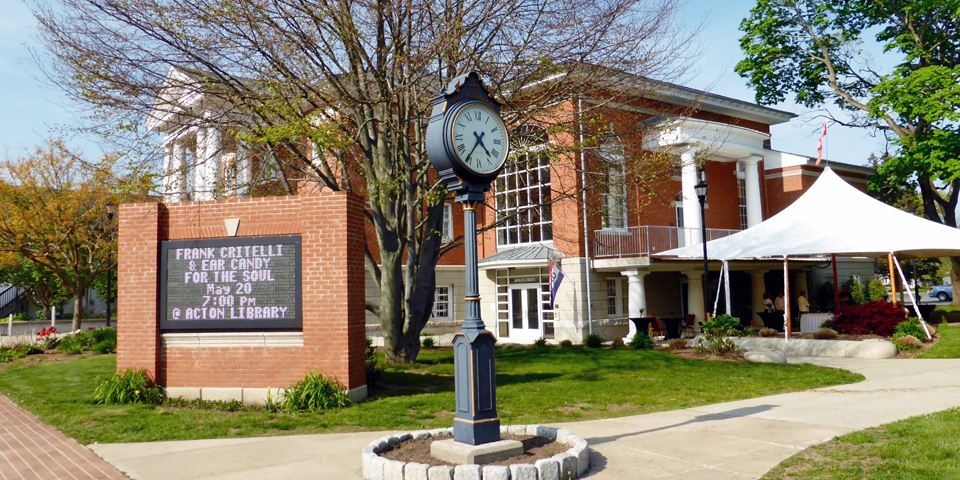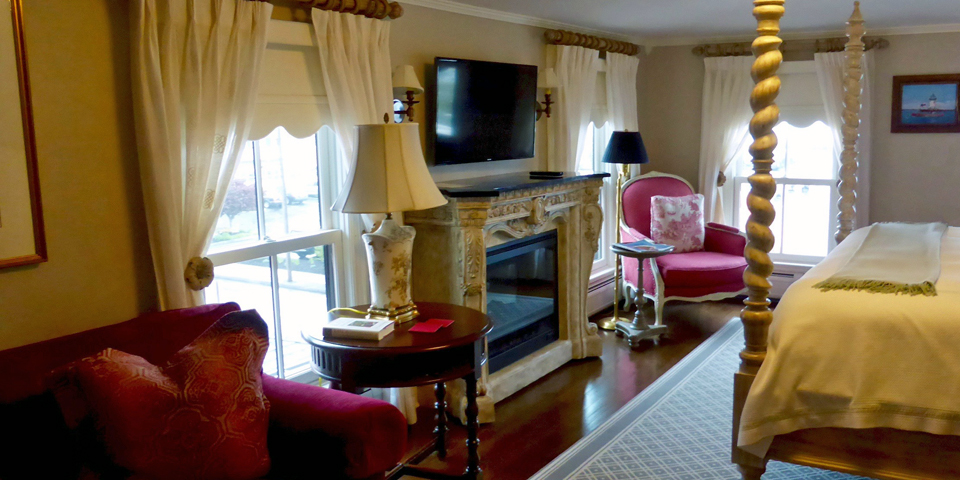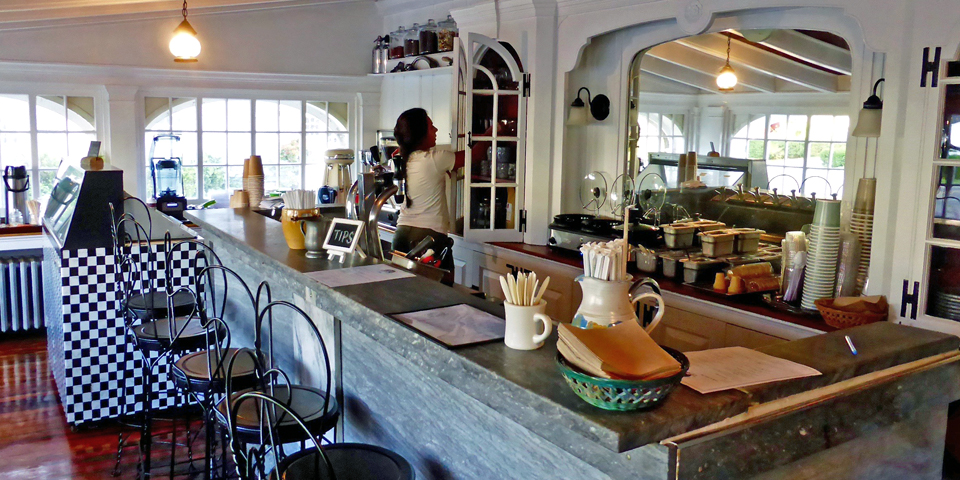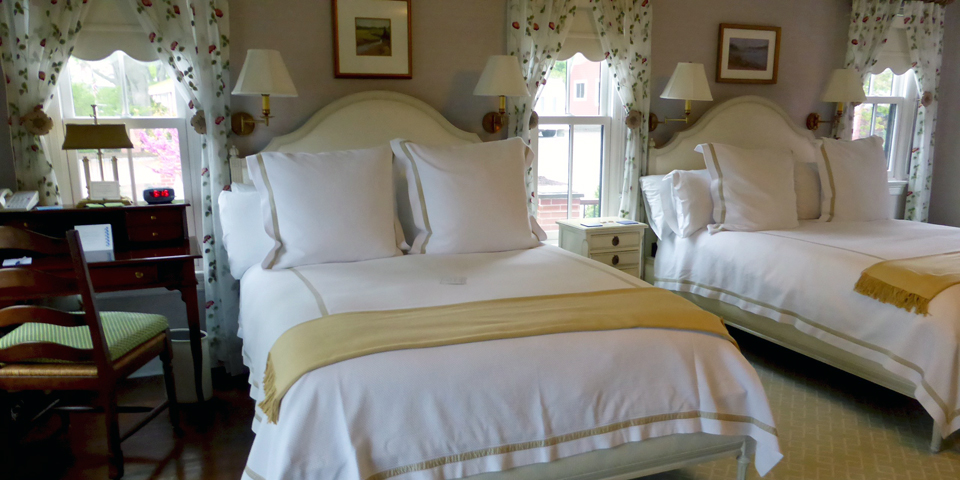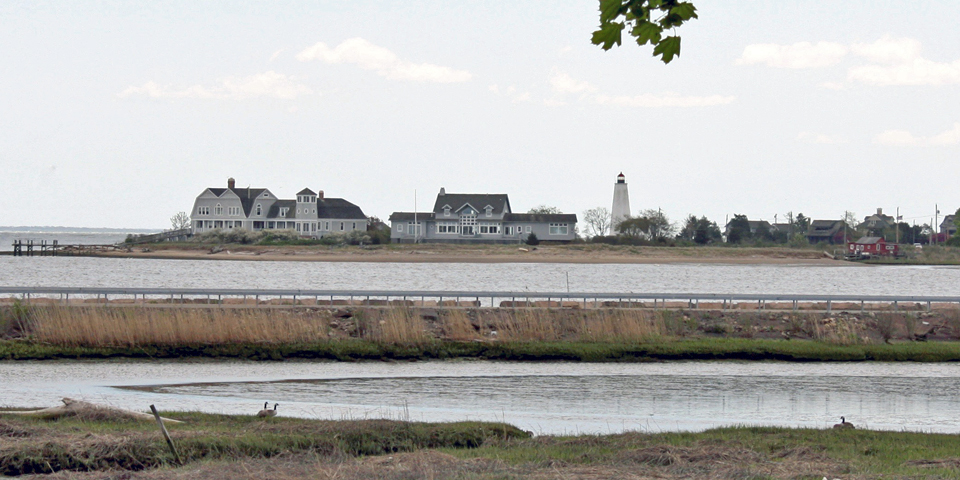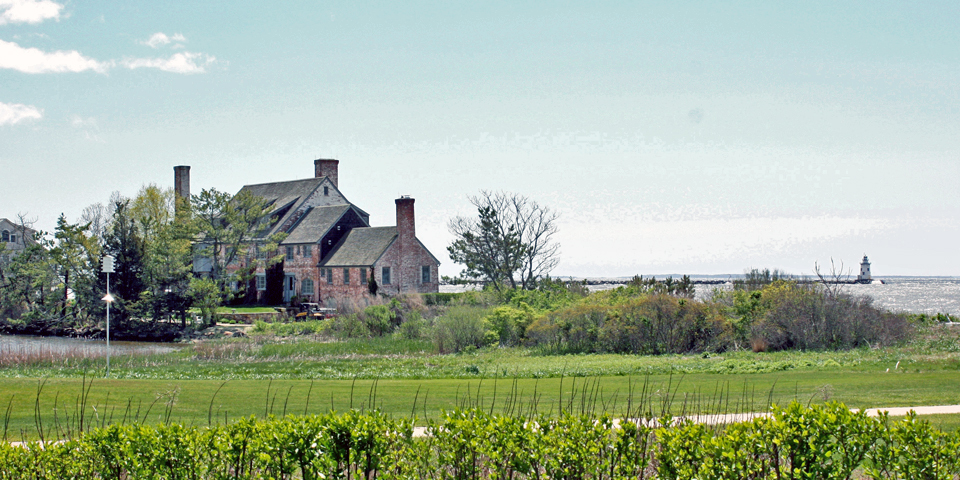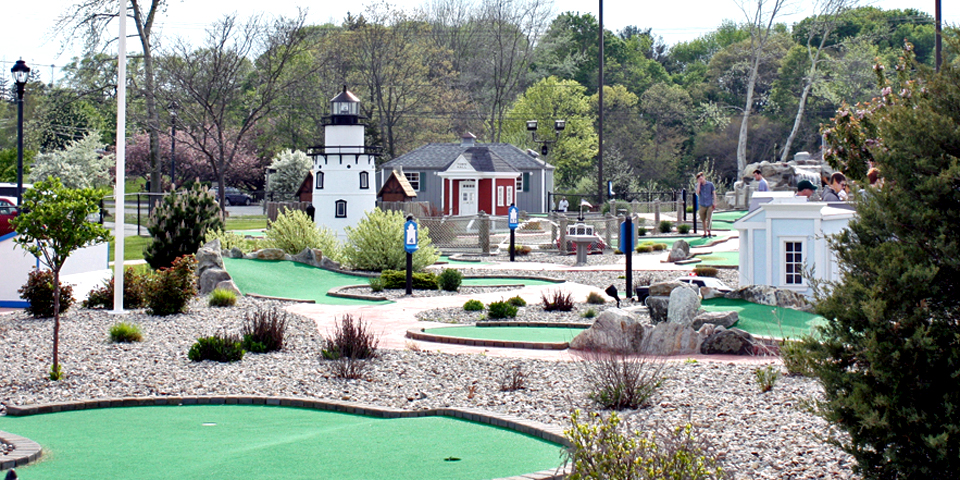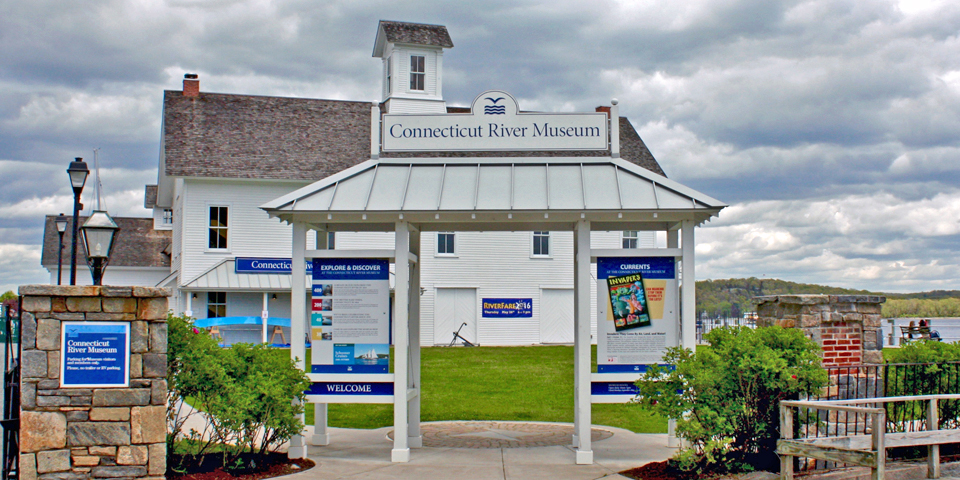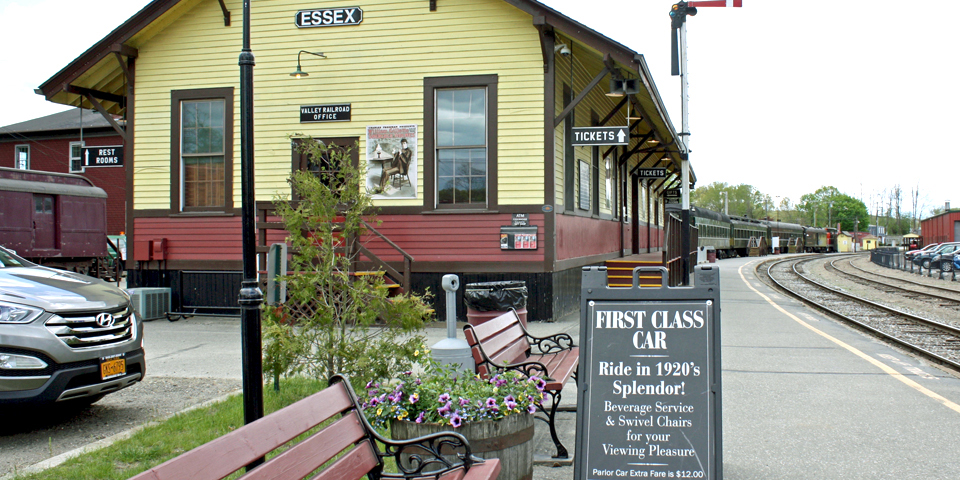Old Saybrook, Connecticut: An immersion in history where the Connecticut River meets Long Island Sound
Saybrook Point Inn and Marina, Old Saybrook, Connecticut
We awakened early one morning during our stay and opened the balcony doors to catch a glimpse of sunrise. Another mega-yacht had docked at the Saybrook Point Marina, towering over the one that arrived the day before. The sun’s golden rays glistened on the water and birds from the abutting sanctuary chirped their morning songs.
view of Saybrook Point Inn & Spa and marina, Old Saybrook, Connecticut
The silhouette of the Lighthouse Suite on the main was visible to the right. This unique and secluded accommodation is a popular overnight choice for couples whose waterfront weddings are held at the Saybrook Point Inn’s Compass Rose and whose receptions are in one of the elegant ballrooms.
The Lighthouse Suite, The Saybrook Point Inn & Spa, Old Saybrook, Connecticut
We were across the road from the main inn at its latest addition, the guest house called Tall Tales. This Victorian Italianate-style home with six guest rooms is the smaller of the inn’s two adjacent guest houses.
The Saybrook Point Inn & Spa’s new Victorian-era Italianate-style Tall Tales is one of two similar houses on the property. It was meticulously designed to authenticate the heritage of Old Saybrook though its architecture and interior decor.
We headed downstairs to the living and dining rooms for some complimentary freshly baked muffins, scones and coffee.
dining and living room of Tall Tales, .Saybrook Point Inn & Spa, Old Saybrook, Connecticut
It was just the beginning of another exceptional day.
freshly baked scones and muffins, Tall Tales, Saybrook Point Inn & Spa, Old Saybrook, Connecticut
The hand-crafted furniture and original local art in each of the unique guest rooms of the guest houses was selected to express the story of a person who played a significant role in local or national history.
We were in the General William Hart junior suite, named for the merchant who prospered in the West Indies trade. In 1767 General Hart built a house on Main Street for his bride where they frequently entertained in grand fashion.
General William Hart junior suite, Saybrook Point Inn & Spa, Old Saybrook, Connecticut
Our room is also called “the gold room” and was designed to reflect the elegant lifestyle General and Mrs. Hart. It has a sitting area, two balconies, a fireplace, and sumptuous European bedding topped with fine, hand woven linens. A skylight bathes the spacious shower and hydrotherapy tub in natural light.
General William Hart junior suite, Saybrook Point Inn & Spa, Old Saybrook, Connecticut
It shares the third floor with a stylish junior suite named for Lady Fenwick. She was the widow of a nobleman and wife of George Fenwick, the only Warwick Patentee to settle in Saybrook County and its second governor. Lady Fenwick died in childbirth and was buried within Fort Saybrook. Her body was moved to Cypress Cemetery in 1870 to accommodate the railway.
Lady Fenwick junior suite, Saybrook Point Inn & Spa, Old Saybrook, Connecticut
Other rooms in Tall Tales include the Adriaen Block room, named for the Dutch explorer and fur trader who charted Narragansett Bay. Block Island, which he visited in 1614, is named for him, and some credit him with naming Rhode Island “Rood Eylandt” for its “rood” (Dutch for red) soil.
Adriaen Block room, Tall Tales, Saybrook Point Inn & Spa, Old Saybrook, Connecticut
Tall Tales’ intimate common areas, including the first-floor kitchen, dining, and living area, make it a good choice for adult groups who want to spend quality time together in a private setting. On the second floor there is a game room with billiards, a custom chess table, and classic board games like checkers and backgammon. There is bocce in the back yard. The guest houses are a fusion of hotel comfort and amenities with the convenience, privacy, and aesthetics of a fine home.
billiard room, Tall Tales, Saybrook Point Inn & Spa, Old Saybrook, Connecticut
The other guest house, Three Stories, was built for William Vars, a prominent member of the Old Saybrook community and railroad engineer who operated the turntable.
Wood carving of railroad engineer William Vars at Three Stories. One side as a railroad engineer and then other with his dog.
Over the years and under different ownership the house deteriorated. Innkeeper Stephen Tagliatela purchased the house and renovated it to, like Tall Tales, authenticate the heritage of Old Saybrook though architecture and interior decor. His pool table is in the Yale Room and has a top that converts it to a conference table.
The Saybrook Point Inn and Spa is a 4-diamond AAA rated property in historic Old Saybrook, Connecticut. The main inn has 100 guest rooms and SANNO, a full-service spa, named for the Latin “sound mind”. Spa guests also have access to the health club with indoor and outdoor pools, sauna, steam room, whirlpool, and a state-of-the-art fitness center.
Its restaurant, Fresh Salt, offers a casual fine dining and serves fresh local and seasonal cuisine. Fresh Salt’s accolades including being named the Best Waterfront Dining, Best Brunch, Best Seafood, and Best Hotel Dining by Connecticut Magazine.
The Terre Mar Room at Fresh Salt, Saybrook Point Inn, Old Saybrook, Connecticut
Quiche, fresh fruit and Canadian bacon at breakfast at Fresh Salt
A bowl of luscious fresh berries at breakfast at Fresh Salt
Dinner Appetizer: Lobster Wonton with Maine Lobster, Asian Cabbage, Yuzu-Wasabi Dipping Sauce
Lobster Chowder at Fresh Salt in the Saybrook Point Inn & Spa, Old Saybrook, Connecticut
The candlelight dinner was paired with wine at Fresh Salt, Saybrook Point Inn & Spa, Old Saybrook, Connecticut
Red-Green Watercress Salad, House-Made Granola, Candied Almonds, Connecticut Goat Cheese Croquette and Blood Orange Viniagrette
Salted Caramel Chocolate Tart with espresso-caramel sauce and espresso gelato at Fresh Salt
filet mignon,Fresh Salt, Saybrook Point Inn & Spa, Old Saybrook, Connecticut
This local landmark is known for the area’s premier dining, spa, and accommodations. Though people travel here for a getaway, we noted that many of the patrons of the restaurant and spa were from the area. Groups were celebrating birthdays or anniversaries at Fresh Salt or there for couples or mother-daughter spa treatments at the Sanno Spa, a good indication of the quality of food and services. The main inn is the hub of activity, with weddings on Fridays and Saturdays and live music at the Marina Bar Sundays through Thursdays.
flowers for a wedding at Compass Rose, the Saybrook Point Inn & Spa, Old Saybrook, Connecticut
Photographs in a room across from the ballrooms are clues to the site’s storied past. One shows the African Queen, formerly operated for tourists, an allusion to Old Saybrook’s best known resident, Katherine Hepburn.
The walls of this room at the Saybrook Point Inn & Spa are lined with historic photographs and other memorabilia.
Some local residents still remember Pease House, the hotel and country store built in the 1870’s that was known for boating and fishing parties. It was replaced in the 1950s by Terre Mar, a resort hotel described as “Great Gatsby style” that was frequented by celebrities like Frank Sinatra and his Rat Pack, actresses like Jayne Mansfield, and an array of tourists and gangsters. Scenes from the movie “Parrish”, starring Troy Donahue, Connie Stevens, and Collette Colbert were shot there. Gambling raids were among the reasons for its demise.
portion of portrait of Louis F. Tagliatela, Sr., innkeeper in the reception area of the Saybrook Point Inn & Spa, Old Saybrook, Connecticut
The Tagliatela family bought the property in 1980, built the Saybrook Point Inn & Spa and conference center, and rebuilt the marina. Well-known guests of this Select Registry distinguished inn include Robert DeNiro, Ted Kennedy, and Billy Joel.
Statues of Viscount Saye and Seale and Baron Brooke, for whom the town was named, are in the hallway. King James I was concerned that England’s Puritan Revolution might fail and King Charles I regain the throne so gave the Earl of Warwick the right to settle the New England region as a refuge.
Viscount Saye and Sele, Saybrook Point Inn & Spa
Baron Brooke, Saybrook Point Inn & Spa
The viscount and baron were among the well connected English nobility given a deed of conveyance in 1631 as part of this Warwick Patent. In 1633, John Winthrop, Jr., son of the first governor of the Massachusetts Bay Colony, was commissioned to oust the Dutch and become the first Governor of the Connecticut Colony. Winthrop authorized Lieutenant Lion Gardiner to build a fort consisting of a town plat that had roads and house lots. In 1636 the settlement was named Saybrook in honor of these patentees.
The turntable site is all that remain from the Connecticut Valley Railroad Roundhouse that operated from 1871 to 1922 at what is now the 17-acre Fort Saybrook Monument Park.
More history is found just a few steps outside the inn. The railroad gave its Saybrook Point land to the State of Connecticut with the stipulation that it be used for “monumental purposes.” The result is the 17-acre Fort Saybrook Monument Park, which includes remnants of the historic Connecticut Valley Railroad Roundhouse.
Boardwalk and Tidal Marsh at Fort Saybrook Monument Park, Old Saybrook, Connecticut
A room at Tall Tales is dedicated to Lion Gardiner. His statue stands guard over the park where storyboards tell the history of Saybrook Colony, founded in 1635. The park’s boardwalk overlooks a marsh and bird sanctuary. The river and estuary’s combination of salt and fresh water creates a habitat for a wide range of plants, fish, and wildlife.
Lion Gardiner room, Tall Tales. Saybrook Point Inn & Spa, Old Saybrook, Connecticut
More storyboards about the area and wooded carvings of sea creatures line the walkway around the inn.
Story boards and sea creatures hand carved by local artists line the waterfront walkway around the Saybrook Point Inn & Spa.
Old Saybrook once prospered with commerce, shipbuilding, and fishing and was the only railroad stop between New London and New Haven. Steamboat service ran between Hartford and New York. However, the shallow depth at the mouth of the Connecticut River and shifting shoals and sandbars limited development.
This is where the fresh waters of New England’s longest river, the Connecticut River, meet the salt water of Long Island Sound. The Connecticut River is an American Heritage River, the United States’ only major river without a major port, harbor, or city. The seaside Saybrook Point Inn & Spa remains a tranquil a place to relax and rejuvenate while immersed in history.
Bar with marina and Lighthouse Suite in background, Saybrook Point Inn & Spa, Old Saybrook, CT
While Old Saybrook cherishes its past it is also mindful of the future. The Saybrook Point Inn & Spa is Energy Star rated for its green initiatives, from the organic fertilizers and xeriscape gardening to the lack of noise noise or fumes from the use of mowers. Motion-detecting thermostats control energy use and emergency generators are bio-fuel capable. Waste water is treated with UV light rather than chlorine, a minimum of which is required to maintain the salt water pools.
As one of Connecticut’s oldest towns, Old Saybrook has some of the state’s most historic architecture. Many of the beautiful historic homes are along the loop around North Cove Road’s scenic waterfront.
Old Saybrook Historic District North Cove sign, Old Saybrook, Connecticut
The William Tully House at #135 was built around 1750 and used as a summer house for working girls. It is one of 32 homes in the town’s North Cove Historic District listed on the National Register of Historic Places.
Old Saybrook Causeway, where Route 154 crosses nearly a mile of South Cove on the Connecticut River, is on the other side of the inn. Its pedestrian sidewalk is a popular spot for an invigorating stroll and for viewing breathtaking sunrises and sunsets.
Restaurants, antique shops, local art galleries and unique shops are just minutes away along Old Saybrook’s historic Main Street. It is just the place for a leisurely stroll.
Most of the buildings around the historic town green, founded in the 1630s, were built between 1760 and 1900, a prosperous time when Old Saybrook was a busy port. The Old Saybrook Historical Society, which is in the Gen. William Hart House, offers house tours from summer to early fall. The Humphrey Pratt Tavern was built in 1785 at 287 Main Street for Old Saybrook’s first postmaster.
The General Willian Hart House is now home to the Old Saybrook Historical Society.
The Ambrose Whittlesey House, at 14 Main, was built in 1765 by the sea captain who was the great-great-grandson of John Whittlesey, an early settler of the Saybrook Colony. Part of the John Whittlesey, Jr. House, 40 Ferry Road, dates from 1693.
The Samuel Eliot House, 500 Main Street, is said to have been built when Samuel Eliot, the son of Yale’s founder, Jared Eliot, was married. The seal of Saybrook College of Yale University is on the town logo, a reminder of when the nation’s third-oldest institution of higher education was founded in Old Saybrook as the Saybrook Collegiate School to educate ministers.
A boulder and inscribed stone on the northwest corner of Cypress Cemetery mark the origins of Yale University, Old Saybrook, Connecticut
A stone at the Cypress Cemetery marks the area where the school originated. Lady Fenwick’s grave is nearby. It is thought that Lion Gardiner planned this cemetery when he designed the fort, making this one America’s oldest, continuously operational burial grounds, and one rich in history.
Lady Fenwick’s grave, Old Saybrook, CT
Wander the grounds and you will spot some of the earliest markers with names from Old Saybrook’s history.
Hart family plot, Cypress cemetery, Old Saybrook, Connecticut
Thomas Buckingham, a founder of Yale and the Saybrook Platform
Daniel Ayer, 1714, Cypress cemetery, Old Saybrook, Connecticut
Willoughby family, Cypress Cemetery, Old Saybrook, Connecticut
Main Street’s Katherine Hepburn Cultural Arts Center is in the former Town Hall. It honors the four-time Academy Award winner and former Old Saybrook resident with a small museum and 250-seat theatre that hosts a wide range of entertainment.
Katherine Hepburn Cultural Arts Center, Old Saybrook, Connecticut
A suite at the inn’s Three Stories guest house is dedicated to Katherine H. Hepburn. A photo of the actress’ mother, Katherine Houghton Hepburn, included a short biography on how she was a leader in the suffragette movement and cofounder of the women’s health organization that became Planned Parenthood.
Katherine H. Hepburn Suite, Three Stories, Saybrook Point Inn & Spa, Old Saybrook, CT
The James Pharmacy, now at 325 Main Street, was built in 1790 as a general store for the Humphrey Pratt Tavern. Marquis de Lafayette stopped there in 1824 on his way to visit Revolutionary War friends. Katharine Hepburn made telephone calls from its old oak phone booth.
The James Pharmacy soda fountain that was added in 1896 still has classic heart-shape back chairs and the original cabinetry and marble countertop. Now also an organic café and juice bar, it remains a popular stop for ice cream.
St. James Pharmacy soda fountain, Old Saybrook, CT
Anna Louise James, daughter of a slave, took over as the first female African American pharmacist in the state of Connecticut when her brother-in-law was called to serve in World War I. She lived in the back apartment until her death in 1977.
Miss James’ niece, Ann Lane Petry, who was also a pharmacist, wrote books including “The Drug Store Cat”, and “Country Place” based on her experiences here.
Three Stories has a guest room named and designed to honor “Miss James”, as she was known.
The Miss James Room, #411 at Three Stories, Saybrook Point Inn & Spa, Old Saybrook, Connecticut
Old Saybrook’s list of National Register of Historic Places also includes the Lynde Point Lighthouse, “The Inner Light”, a 65’ tower with tapering brownstone walls built when whale oil provided power. It marks the entrance to the river and harbor and is visible from the inn and guest houses.
view of Lynde Point Lighthouse, the Inner Light, from the Causeway, Old Saybrook, Connecticut
The 49’ Saybrook Breakwater Lighthouse, “The Outer Light,” is a white cast iron tower lined in brick built in 1886 at the outer end of the breakwater, near the former Hepburn home.
The former Hepburn house in Fenwick, a subdivision of Old Saybrook, overlooks the Saybrook Breakwater Lighthouse, also known as the Outer Light.
Some Connecticut license plates feature this lighthouse. A replica is found at the town-owned miniature golf course near the Saybrook Point Inn & Spa.
A miniature golf course near the Saybrook Point Inn & Spa has a replica of the Outer Light.
If time allows, you may want to learn more about New England’s longest river at the Connecticut River Museum in nearby Essex, Connecticut.
Connecticut River Museum, Essex, Connecticut
Essex is also the site of the Essex Steam Train and Riverboat Ride.
ticket office for Essex Steam Train and Riverboat Ride, Essex. Connecticut

